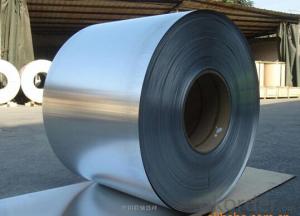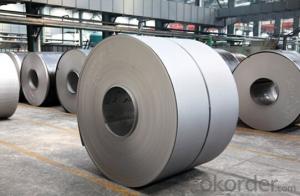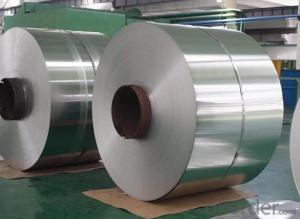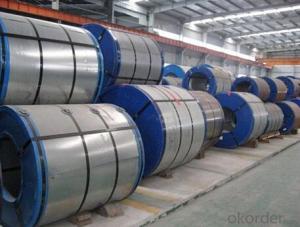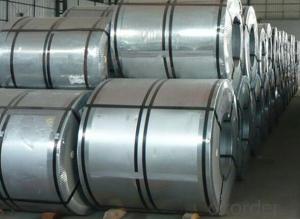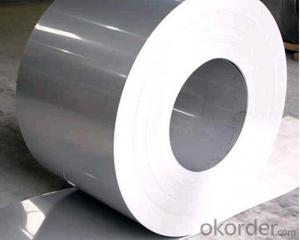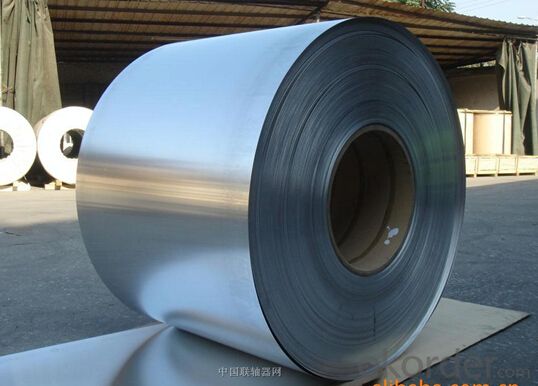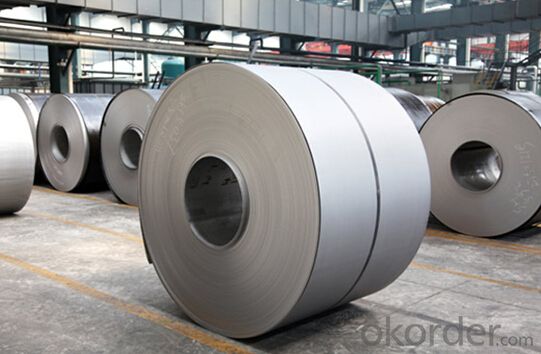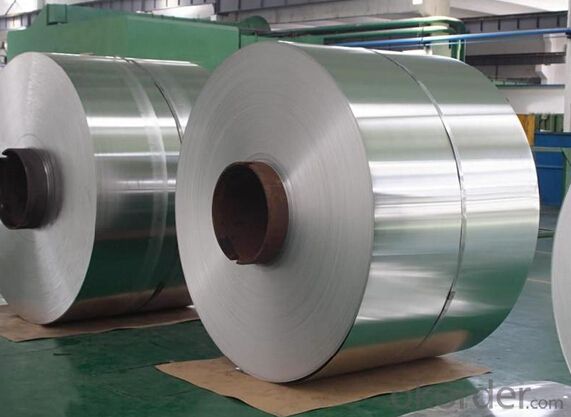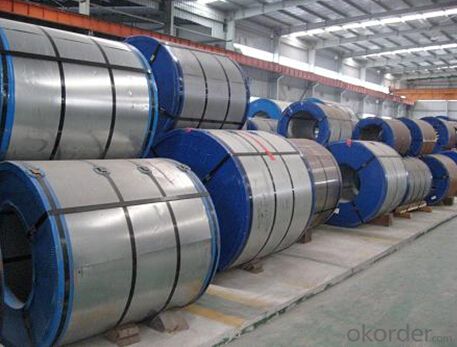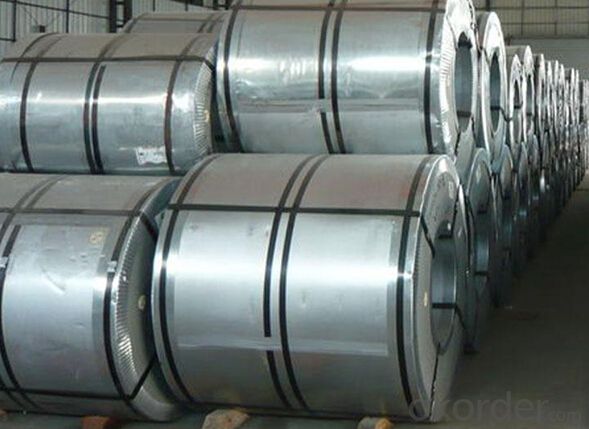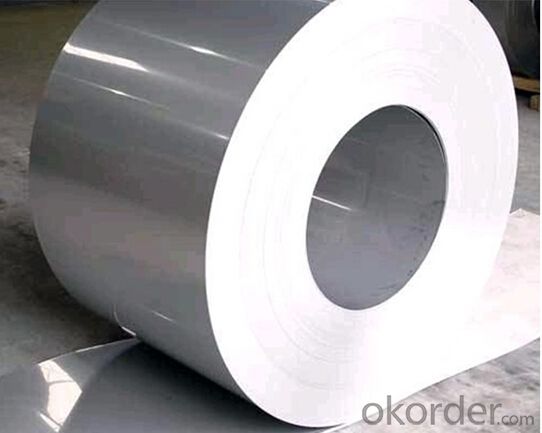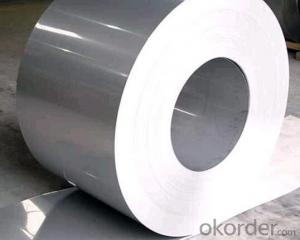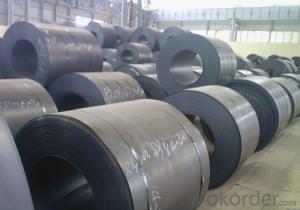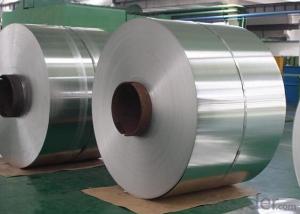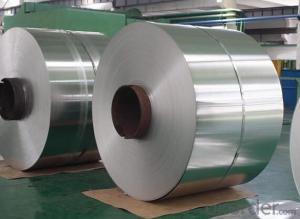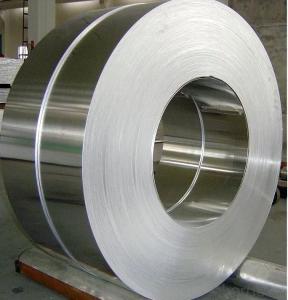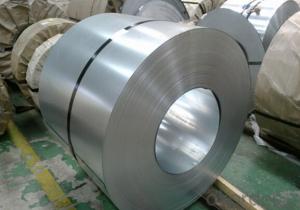Grade ASTM A755M CS-B Galvanized Steel Coil
- Loading Port:
- Tianjin
- Payment Terms:
- TT OR LC
- Min Order Qty:
- 3 m.t.
- Supply Capability:
- 10000 m.t./month
OKorder Service Pledge
OKorder Financial Service
You Might Also Like
Specification
Grade ASTM A755M CS-B Galvanized Steel Coil
Specification of ASTM A755M CS-B Galvanized Steel Coil
1. Galvanized Steel Coil
(1) Width: 600-1570mm
(2) Thickness: 0.13-5.0mm
(3) Grade: JIS G3302-SGCC-SGC570, SGCH (full hard-G550), SGHC-SGH540
EN10346-DX51D+Z, DX53D+Z, S250GD-S550GD
STM A653-CS-B, SS255-SS550
(4) Zinc Coating: Z40g/m2~Z500g/m2 (both side total coating thickness)
2. Galvalume Steel Coil
(1) Width: 600~1500mm
(2) Thickness: 0.15~2.30mm
(3) Grade: JIS G3321-SGLCC, SGLC400-570, (G550)
EN10346-DX51D+AZ, DX53D+AZ, S250-S550
ASTM A792M CS-B, SS255-SS550
(4) AZ Coating: AZ50~AZ185g/m2
3. Prepainted Galvanized Steel Coil (PPGI)
(1) Width: 600~1250mm
(2) Thickness: 0.19~1.50mm
(3) Grade: JIS G3312-CGCC, CGC340-570, (G550)
ASTM A755M CS-B, SS255-SS550
(4) Zinc Coating: Z40g/m2~Z500g/m2 (both side total coating thickness)
4. Prepainted Galvanized Steel Coil (PPGL)
(1) Width: 600~1250mm
(2) Thickness: 0.20~1.50mm
(3) Grade: JIS G3322-CGLCC, CGLC340-570, (G550)
ASTM A755M CS-B, SS255-SS550
(4) AZ Coating: AZ50~AZ185g/m2 (both side total coating thickness)
5. Cold Rolled Steel Coil (Soft) (for further information, pls click the product name)
(1) Width: 600~1570mm
(2) Thickness: 0.13~2.50mm
(3) Grade: JIS G3141-SPCC-SD, SPCD-SD, SPEC-SD
JIS G3135-SPFC 340/390/440
EN10130-DC01, DC03, DC04
SAE1006, SAE1008
ASTM A424-TypeⅡ
6. Cold Rolled Steel Coil (Full Hard) (for further information, pls click the product name)
(1) Width: 600~1570mm
(2) Thickness: 0.13~2.50mm
(3) Grade: JIS G3141-SPCC-1B, SPCC-1D
7. Hot Rolled Steel Coil
(1) Width: 1000~1524mm
(2) Thickness: 1.20~16.5mm, other thickness can be negotiation
(3) Grade: JIS G3101-SS400, JIS G3132-SPHT1/2/3, ASTM A36, Q195, Q235 etc.
Company Introduction of the Grade ASTM A755M CS-B Galvanized Steel Coil
CNBM International Corporation is the most import and export platform of CNBM group(China National Building Material Group Corporation) ,which is a state-owned enterprise, ranked in 270th of Fortune Global 500 in 2015.
With its advantages, CNBM International are mainly concentrate on Cement, Glass, Iron and Steel, Ceramics industries and devotes herself for supplying high quality series of refractories as well as technical consultancies and logistics solution.
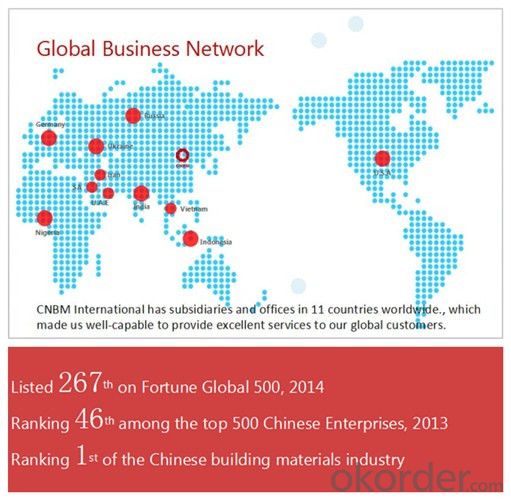
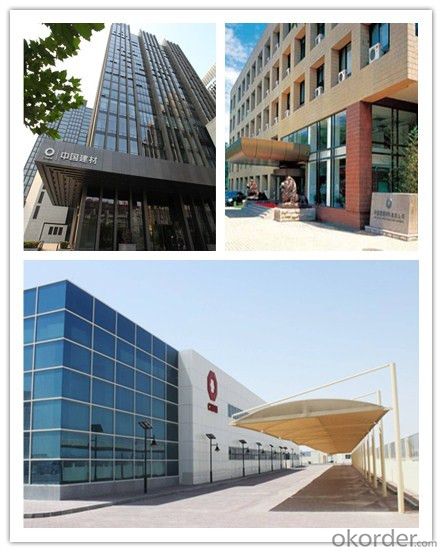
Packaging & Delivery of the Grade ASTM A755M CS-B Galvanized Steel Coil
Packaging Detail | Sea worthy packing /as per customer's packing instruction |
Delivery Detail | 15 ~ 40 days after receiving the deposit |
Products Show:
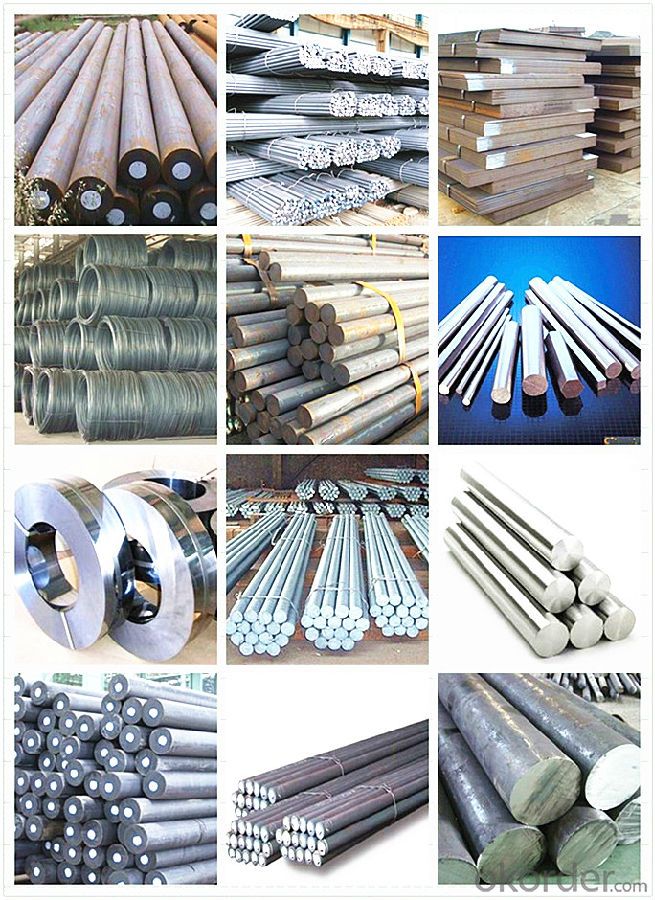
FAQ:
Are you a trading company or manufacturer? | Manufacturer |
What’s the MOQ? | 3 metric ton |
What’s your delivery time? | 15-35 days after downpayment received |
Do you Accept OEM service? | Yes |
what’s your delivery terms? | FOB/CFR/CIF |
What's the Payment Terms? | 30% as deposit,70% before shipment by T/T |
Western Union acceptable for small amount. | |
L/C acceptable for large amount. | |
Scrow ,Paybal,Alipay are also ok | |
Why choose us? | Chose happens because of quality, then price, We can give you both. Additionally, we can also offer professional products inquiry, products knowledge train (for agents), smooth goods delivery, excellent customer solution proposals. |
What's your available port of Shipment? | Main Port, China |
What’s your featured services? | Our service formula: good quality+ good price+ good service=customer's trust
|
Where are your Market? | Covering more than 160 countries in the world |
- Q: What are the different methods of surface etching for special steel?
- There are several different methods of surface etching that can be used for special steel. These methods include: 1. Chemical etching: Chemical etching involves the use of various acids or other chemical solutions to selectively remove material from the surface of the steel. This method allows for precise control over the etching process and can create highly detailed patterns or designs on the steel surface. 2. Electrochemical etching: Electrochemical etching uses an electrical current to etch the surface of the steel. This method can be particularly effective for creating deep, uniform etches and is often used for marking or labeling purposes. 3. Laser etching: Laser etching involves the use of a high-powered laser to remove material from the steel surface. This method is highly precise and can create very intricate designs or markings. Laser etching is commonly used for branding or decorative purposes. 4. Mechanical etching: Mechanical etching utilizes physical abrasion to remove material from the steel surface. This can be done manually using tools such as sandpaper or brushes, or with the help of machinery like a sandblaster. Mechanical etching is often used to create a textured or roughened surface. 5. Plasma etching: Plasma etching involves the use of a high-energy plasma to remove material from the steel surface. This method is particularly useful for creating very fine, shallow etches and is commonly used in microfabrication or semiconductor manufacturing. Each of these methods has its own advantages and limitations, and the choice of which method to use will depend on factors such as the desired outcome, the type of special steel being etched, and the available equipment and resources.
- Q: What are the benefits of using special steel in the energy sector?
- The benefits of using special steel in the energy sector are numerous. Firstly, special steel offers exceptional strength, durability, and resistance to corrosion, making it ideal for withstanding the harsh conditions experienced in energy production and transmission. This allows for longer service life and reduced maintenance costs. Additionally, special steel possesses excellent heat resistance, enabling it to withstand high temperatures and pressure, making it suitable for use in power generation equipment such as turbines and boilers. Furthermore, special steel is highly versatile and can be customized to meet specific requirements, facilitating the design and construction of complex structures and components in the energy sector. Ultimately, the use of special steel enhances the reliability and efficiency of energy systems, contributing to overall sustainability and cost-effectiveness.
- Q: What are the properties of shock-resistant alloy steel?
- Shock-resistant alloy steel is a type of steel that possesses specific properties that make it highly resistant to shock and impact. These properties include high tensile strength, toughness, and hardness. It is also known for its ability to withstand sudden changes in temperature, making it suitable for applications in extreme environments. Additionally, shock-resistant alloy steel has excellent fatigue resistance, corrosion resistance, and wear resistance, making it ideal for use in industries such as aerospace, automotive, and defense.
- Q: What are the main characteristics of corrosion-resistant steel?
- Corrosion-resistant steel, also known as stainless steel, is a type of steel alloy that possesses unique characteristics that make it highly resistant to corrosion. Here are the main characteristics of corrosion-resistant steel: 1. High resistance to corrosion: One of the primary characteristics of corrosion-resistant steel is its ability to resist corrosion. This is achieved through the addition of specific alloying elements, such as chromium, nickel, and molybdenum, which form a protective layer on the surface of the steel. This protective layer, known as the passive layer, prevents the underlying steel from coming into contact with corrosive substances, such as moisture, chemicals, and acids. 2. Excellent durability: Corrosion-resistant steel exhibits exceptional durability, making it suitable for various applications in harsh environments. It can withstand exposure to extreme temperatures, high humidity levels, and corrosive chemicals without deteriorating or losing its structural integrity. This durability ensures that structures made from corrosion-resistant steel have a long service life, reducing the need for frequent maintenance and replacements. 3. Aesthetic appeal: In addition to its functional properties, corrosion-resistant steel also offers aesthetic appeal. Its smooth and polished surface gives it a visually pleasing appearance, making it a popular choice for architectural applications, interior design, and decorative elements. The ability to maintain its appearance over time, without rusting or discoloration, adds to its desirability in both industrial and domestic settings. 4. High strength: Corrosion-resistant steel is known for its high strength and toughness. It retains its mechanical properties even in corrosive environments, allowing it to withstand heavy loads, impacts, and other external forces. This strength makes it suitable for applications where structural integrity and safety are crucial, such as bridges, buildings, marine equipment, and automotive components. 5. Versatility: Corrosion-resistant steel offers versatility in terms of its applications. It can be easily fabricated, welded, machined, and formed into various shapes and sizes, allowing for customization and adaptability. This versatility makes it ideal for a wide range of industries, including construction, aerospace, automotive, chemical processing, and marine. 6. Hygienic properties: Another important characteristic of corrosion-resistant steel is its hygienic properties. Its non-porous surface prevents the growth of bacteria, making it suitable for applications in the food and beverage industry, healthcare facilities, and pharmaceutical manufacturing. The ease of cleaning and maintenance further enhances its hygiene standards. Overall, corrosion-resistant steel combines excellent resistance to corrosion with durability, strength, versatility, and aesthetic appeal. These characteristics make it a reliable and cost-effective material for various industries, ensuring long-term performance and protection against the damaging effects of corrosion.
- Q: How does special steel contribute to improving product lifespan?
- Special steel contributes to improving product lifespan by offering enhanced strength, durability, and resistance to corrosion. Its unique composition and manufacturing processes result in a material that can withstand harsh conditions, heavy loads, and wear and tear over an extended period. This increased longevity and reliability of products made with special steel ultimately leads to reduced maintenance costs, less frequent replacements, and improved customer satisfaction.
- Q: What are the different non-destructive evaluation techniques used for special steel?
- There are several non-destructive evaluation techniques used for special steel, including ultrasonic testing, magnetic particle inspection, liquid penetrant testing, eddy current testing, and radiographic testing. These techniques are used to detect flaws, defects, and structural integrity issues in special steel without causing any damage to the material.
- Q: How does sulfur affect the machinability of special steel?
- Sulfur can have both positive and negative effects on the machinability of special steel. On one hand, sulfur acts as a free-machining element when added in small amounts. It forms sulfide inclusions that help improve the chip-breaking ability during machining, resulting in better surface finish, reduced tool wear, and improved cutting speeds. This is particularly beneficial for high-speed machining operations. On the other hand, excessive sulfur content can have detrimental effects on machinability. High levels of sulfur can lead to the formation of brittle sulfide inclusions, causing poor machinability and reduced mechanical properties. It can result in increased tool wear, poor surface finish, and lower cutting speeds. Additionally, sulfur can promote the formation of built-up edge, which further hampers the machinability of special steel. Therefore, it is crucial to maintain an optimal sulfur content in special steel to strike a balance between improved machinability and maintaining the desired mechanical properties. Proper control of sulfur levels in the steel composition, along with appropriate machining techniques and tool selection, is necessary to achieve efficient and high-quality machining of special steel.
- Q: What industries use special steel?
- Special steel plays a vital role in multiple industries, relying on its unique properties to carry out their operations. The automotive industry, for instance, utilizes special steel extensively in manufacturing engine parts, transmission systems, and chassis components. The exceptional strength, durability, and corrosion resistance of special steel make it an ideal choice for withstanding the challenging conditions faced by automotive components. Similarly, the aerospace industry heavily relies on special steel in constructing aircraft structures, engine components, and landing gear systems. The lightweight yet robust characteristics of special steel are crucial in ensuring the safety and performance of aircraft. In the energy sector, special steel is essential for producing equipment used in oil and gas exploration, such as drilling rigs, pipelines, and offshore platforms. The high-strength and corrosion-resistant properties of special steel enable it to withstand the harsh operating conditions prevalent in this industry. The construction industry is also a significant consumer of special steel, using it in the manufacturing of structural components, reinforcing bars, and precast concrete products. Special steel provides the necessary strength and durability required for building structures capable of withstanding diverse environmental conditions and heavy loads. Moreover, the manufacturing and machinery industry relies on special steel for producing heavy machinery, industrial equipment, and machine tools. The exceptional strength, wear resistance, and heat resistance properties of special steel make it well-suited to meet the demanding requirements of these applications. Lastly, the defense and military industry heavily depends on special steel for producing military vehicles, weapons, and armor. Special steel's ability to withstand extreme conditions and provide protection makes it a critical material in this industry. Overall, special steel's exceptional properties of strength, durability, corrosion resistance, and heat resistance make it indispensable across various industries. Its applications span from automotive and aerospace to energy, construction, manufacturing, and defense sectors, where reliability and performance are of paramount importance.
- Q: How does special steel compare to other materials such as aluminum or titanium?
- Special steel, when compared to other materials such as aluminum or titanium, offers a unique set of advantages and characteristics. Firstly, special steel is known for its exceptional strength and durability. It has a higher tensile strength compared to aluminum and titanium, making it ideal for applications that require withstanding heavy loads or high-stress environments. This strength also provides resistance against wear and tear, ensuring a longer lifespan of the material. Another significant advantage of special steel is its ability to maintain its mechanical properties at extreme temperatures. While aluminum and titanium may experience a significant decrease in strength at elevated temperatures, special steel retains its structural integrity, making it suitable for applications that involve high temperatures or thermal cycling. In terms of cost-effectiveness, special steel often proves to be more affordable than titanium, especially in large-scale production. Although aluminum is generally cheaper than special steel, it may not possess the same level of strength or resistance to corrosion, which could limit its applicability in certain industries. Moreover, special steel has excellent machinability and can be easily formed into different shapes and sizes, allowing for greater design flexibility. This quality makes it suitable for various industries such as automotive, aerospace, construction, and manufacturing, where complex components or structures are required. Lastly, special steel exhibits superior corrosion resistance compared to aluminum and titanium. It can be treated or coated to provide additional protection against rust and other forms of degradation, extending its lifespan even further. In summary, special steel outperforms aluminum and titanium in terms of strength, durability, temperature resistance, and corrosion resistance. Its cost-effectiveness, machinability, and versatility make it a preferred material in various industries, where high-performance and reliability are crucial factors.
- Q: Is special steel suitable for marine applications?
- Yes, special steel is suitable for marine applications. Special steel alloys, such as stainless steel, are highly resistant to corrosion from seawater and provide excellent strength and durability in harsh marine environments. They are widely used in the construction of ships, offshore platforms, and other marine structures due to their ability to withstand the corrosive effects of saltwater and maintain structural integrity over extended periods.
Send your message to us
Grade ASTM A755M CS-B Galvanized Steel Coil
- Loading Port:
- Tianjin
- Payment Terms:
- TT OR LC
- Min Order Qty:
- 3 m.t.
- Supply Capability:
- 10000 m.t./month
OKorder Service Pledge
OKorder Financial Service
Similar products
Hot products
Hot Searches
Related keywords
